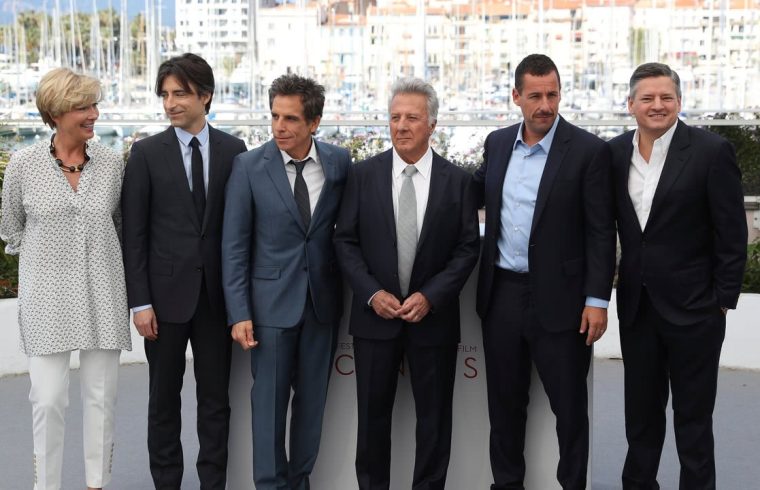
THE rise of Netflix has been greeted frostily by some of the old guard at the Cannes film festival, where the American streaming giant’s disregard for releasing films in cinemas wins it few friends. It looked a bit more at home on May 21st, as the lights went up at the Louis Lumière theatre. The stars of its own film, “The Meyerowitz Stories (New and Selected)â€, a comedy drama, accepted a standing ovation from the audience. Ted Sarandos, Netflix’s head of content, stood alongside Dustin Hoffman, Ben Stiller and other cast members. Festival-goers jostled for a word with him at a swanky after-party.
This is the first year that Netflix has been admitted into the festival’s competition, with two films, “The Meyerowitz Stories†and “Okjaâ€, directed by Bong Joon-ho of South Korea. Still, cries of protest from French film-industry executives prompted Thierry Frémaux, the festival director, to declare that, in future, only films guaranteed a theatrical release in France can qualify for the top Palme d’Or prize. Pedro Almodóvar, a film director and president of the jury, groused that he could not imagine a winner that could be seen only on small screens. During a press screening of “Okjaâ€, Netflix’s logo was met by a smattering of boos.
The controversy turns, appropriately enough for the French, on an existential question: if a film is never shown in cinemas, is it still a film? Netflix’s run at Cannes this year suggests that the majority of film types, at least, answer with a resounding “yesâ€. Independent film financiers, producers, directors and actors, including local ones, regard Mr Sarandos as, in effect, a Hollywood studio chief—but one who stakes big money on independent film.
Therein lies the rub. In this age of Marvel superhero sequels and Harry Potter spin-offs, indie films struggle for customers. The median return on a low-budget film at the American box office is 45 cents on the dollar. With 100m subscribers globally, Netflix uses different maths to justify investments, including whether a film works for a specific segment of customers. And it has a lot of cash. Netflix will spend more than $ 7bn on content this year.
Critics lament that no one will see Netflix’s films in a cinema. (Amazon, its big rival in streaming video, has decided to support cinema-first distribution; and Netflix itself does occasionally put films in cinemas in a few countries.) The criticism is especially political in France, the birthplace of film. Whereas Netflix has a business model that can finance less commercial, arty films, France’s government heavily subsidises such production. It imposes a “culture tax†on cinemas and broadcasters and also obliges TV networks to invest in film-making. Another part of the system is a three-year delay between a film’s release in theatres and its availability over internet services, which protects cinemas and physical-media formats.
That delay was the sticking-point between Netflix and Cannes. Mr Sarandos says Netflix tried and failed to obtain a waiver so that its festival entries could appear in cinemas briefly. No matter. Despite Mr Frémaux’s ruling, Mr Sarandos expects to be back competing at Cannes. It will be hard for the festival’s film buffs to keep resisting Mr Stiller’s argument: that while he wants to see movies in cinemas, “studios aren’t making the movies Ted’s making.â€






